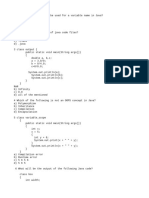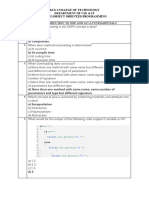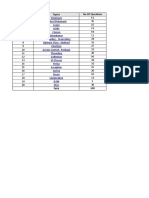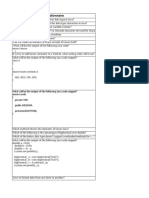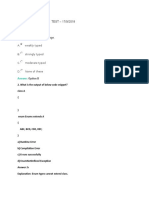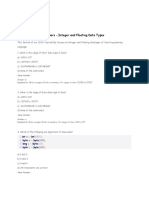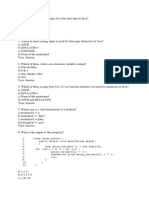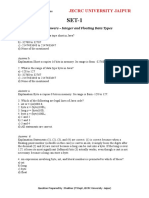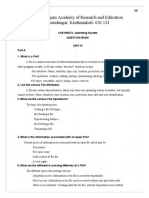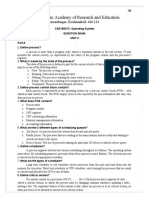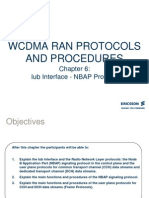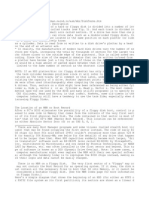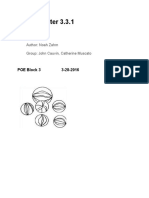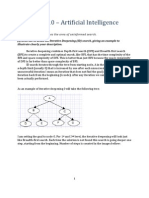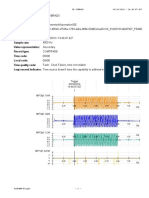0% found this document useful (0 votes)
20 views32 pagesOperators in Java (10.03.2025)
The document contains a series of Java programming questions and their corresponding outputs, focusing on operators, control statements, and performance. Each question is followed by multiple-choice options, with instructions to insert the correct option number in the designated column. The document emphasizes not changing any default column names and provides a structured format for responses.
Uploaded by
Kartheeban KamatchiCopyright
© © All Rights Reserved
We take content rights seriously. If you suspect this is your content, claim it here.
Available Formats
Download as XLSX, PDF, TXT or read online on Scribd
0% found this document useful (0 votes)
20 views32 pagesOperators in Java (10.03.2025)
The document contains a series of Java programming questions and their corresponding outputs, focusing on operators, control statements, and performance. Each question is followed by multiple-choice options, with instructions to insert the correct option number in the designated column. The document emphasizes not changing any default column names and provides a structured format for responses.
Uploaded by
Kartheeban KamatchiCopyright
© © All Rights Reserved
We take content rights seriously. If you suspect this is your content, claim it here.
Available Formats
Download as XLSX, PDF, TXT or read online on Scribd
/ 32





